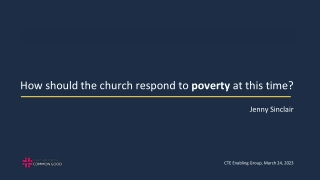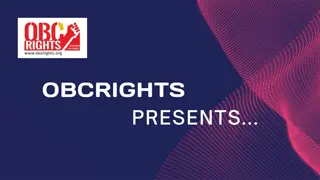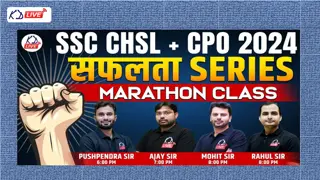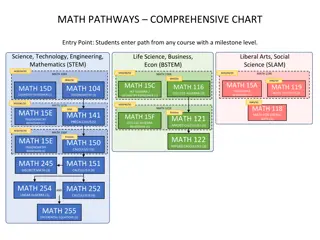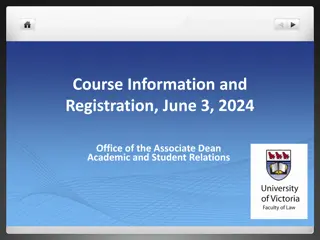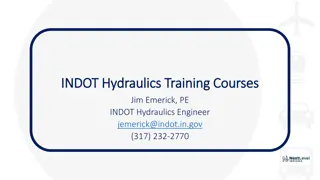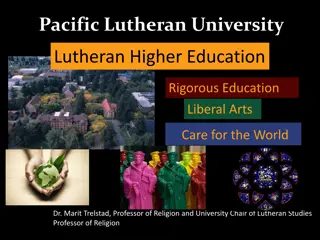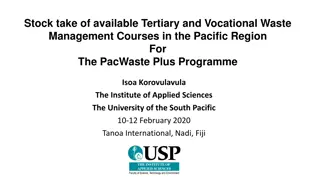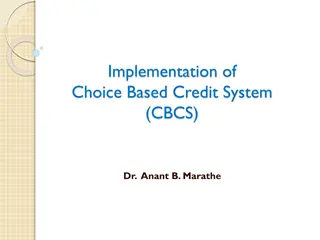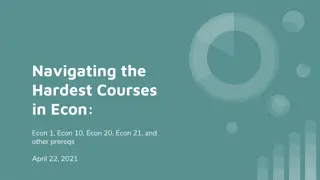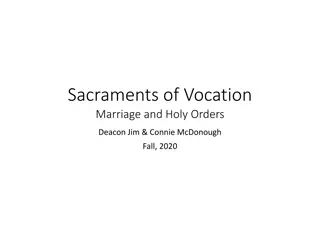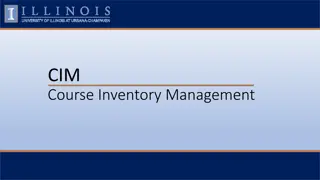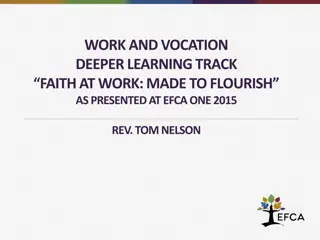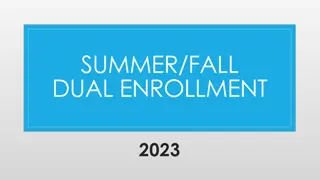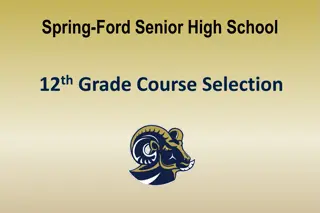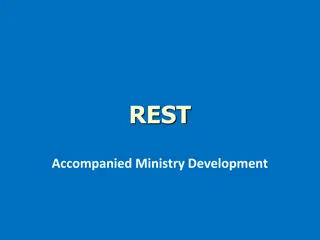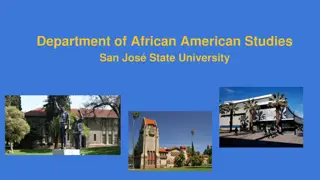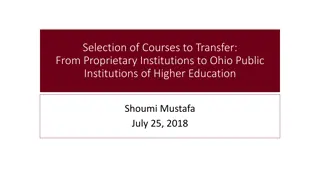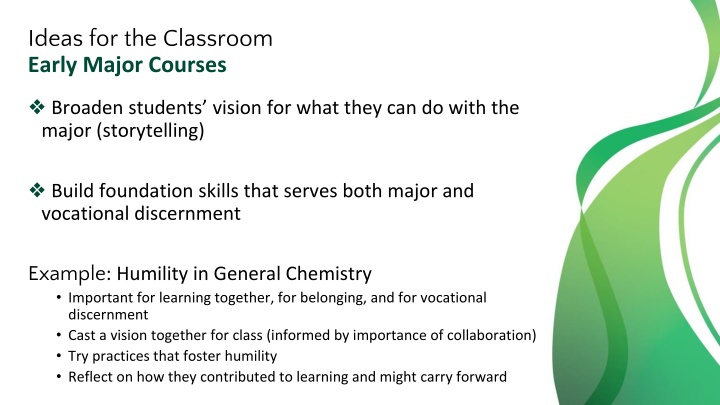
Fostering Foundational Skills in Early Major Courses
Discover innovative classroom ideas to broaden students' perspectives and build essential skills for both their major and vocational discernment. Explore practices like humility in General Chemistry, empathy in English, and reflection in World Languages to enhance learning and personal growth.
Download Presentation

Please find below an Image/Link to download the presentation.
The content on the website is provided AS IS for your information and personal use only. It may not be sold, licensed, or shared on other websites without obtaining consent from the author. If you encounter any issues during the download, it is possible that the publisher has removed the file from their server.
You are allowed to download the files provided on this website for personal or commercial use, subject to the condition that they are used lawfully. All files are the property of their respective owners.
The content on the website is provided AS IS for your information and personal use only. It may not be sold, licensed, or shared on other websites without obtaining consent from the author.
E N D
Presentation Transcript
Ideas for the Classroom Early Major Courses Broaden students vision for what they can do with the major (storytelling) Build foundation skills that serves both major and vocational discernment Example: Humility in General Chemistry Important for learning together, for belonging, and for vocational discernment Cast a vision together for class (informed by importance of collaboration) Try practices that foster humility Reflect on how they contributed to learning and might carry forward
Ideas for the Classroom Be Explicit About a Skill Students Should Develop The skill should support disciplinary content and broader vocational development Empathy in English A reading of a novel or story can become an opportunity to practice empathy through perspective-taking Discuss the role that empathy will play in navigating various work environments and communities in the future Dissent in Political Science Dissent forces us to clarify the deeply held convictions at the heart of our oppositional response. By unpacking that dissent, students can be prompted to articulate beliefs, stances, and worldviews that apply well beyond the topic.
Ideas for the Classroom Be Explicit About a Skill Students Should Develop The skill should support disciplinary content and broader vocational development Reflection in World Languages Language acquisition is inextricable from learning about ourselves, crafting our stories, connecting with others, and discerning how to live an intentional life. Opens up space for students to consider multiple pulls on their time and attention as well as how various calls may or may not align with their goals and senses of purpose. Example: classic warm up for past tense sharing what they did over the weekend - expand something you did, and why; something you wanted to do but did not, and why not; something you did even though you didn t really want to, and how you came to this decision; and how you feel about it all. https://vocationmatters.org/2024/03/14/vocation-in-the-world-language-classroom/
Ideas for the Classroom Consider the topic as you build foundational skills Writing Choose readings and writing assignments that foster attentiveness or engage with vocation https://vocationmatters.org/2021/06/24/attentiveness-technology-and-first-year- writing/ Communication Have students practice communication while storytelling why are you here now? Have students listen to or tell the stories of others (someone in their field, alumni, etc.) https://www.npr.org/podcasts/510200/storycorps
Ideas for a Major/Program Example: Gender and Sexuality Studies Program In first-year advisement, students actively explore their values and choices to construct meaningful paths and plans. In second- and third-year course assignments, students reflect on vocational exploration and discovery that values personal resiliency, empathy, and awareness of community. In third-year internship reflections, students consider how the meaning and purposes of the professional setting of their internship helps them to know who and how they want to be in the world. In senior capstone projects, students practice responsible use of power in public letters and podcasts to communicate effectively the development of their sense of purpose in work and life that is not only informed by their disciplinary coursework, professional contexts, and internships but also accessible to non-college communities.
Ideas for the Classroom Consider Your Texts Shift the text you engage or the way you engage with a text Musical Overture The following example is for if you were learning about musical overtures. The approach could be adapted to a variety of settings. Prompt: What is a musical overture? How does this help preview the rest of your performance? Write a short overture of your own life at college (or vocation pathway).


